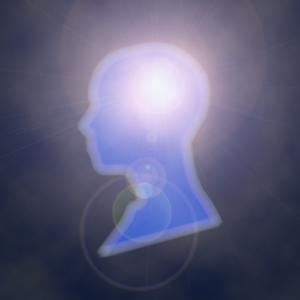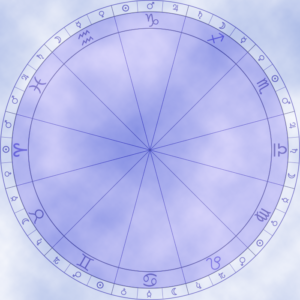Anthropology has had a wild ride over the last fifty or sixty years. What was originally little more than a justification for empire-building, has begun to evolve into an honest exploration of different ways of being human. More and more ethnographies are published each year which align with the idea of perspectivism. That is, anthropologists are becoming more inclined to see different cultures on their own terms, and to acknowledge that “facts” and perception are always bounded by the interpretive perspective of the observer.

And this has led to some interesting discoveries about our own culture.
In the book, The Dawn of Everything: A New History of Humanity, written by anthropologist David Graeber and archeologist David Wengrow, we find the following…
“Let us consider the case of Helena Valero, a Brazilian woman born into a family of Spanish descent, whom Pinker mentions as a ‘white girl’ abducted by Yanomami in 1932 while travelling with her parents along the remote Rio Dimití.
For two decades, Valero lived with a series of Yanomami families, marrying twice, and eventually achieving a position of some importance in her community. Pinker briefly cites the account Valero later gave of her own life, where she describes the brutality of a Yanomami raid. What he neglects to mention is that in 1956 she abandoned the Yanomami to seek her natal family and live again in ‘Western civilization,’ only to find herself in a state of occasional hunger and constant dejection and loneliness. After a while, given the ability to make a fully informed decision, Helena Valero decided she preferred life among the Yanomami, and returned to live with them.
Her story is by no means unusual. The colonial history of North and South America is full of accounts of settlers, captured or adopted by indigenous societies, being given the choice of where they wished to stay and almost invariably choosing to stay with the latter. This even applied to abducted children. Confronted again with their biological parents, most would run back to their adoptive kin for protection. By contrast, Amerindians incorporated into European society by adoption or marriage, including those who–unlike the unfortunate Helena Valero–enjoyed considerable wealth and schooling, almost invariably did just the opposite: either escaping at the earliest opportunity, or–having tried their best to adjust, and ultimately failed–returning to indigenous society to live out their last days.”
Let’s set aside the idea (however attractive) of quitting your job and running off into the Amazon rainforest. Instead, let’s think about the broader implications of these three paragraphs.
We have two groups of people, here: Europeans and Native Americans. Each group is given the opportunity to thoroughly interrogate and investigate their respective cultures by immersing themselves in another. After they’ve taken this opportunity, the majority of people from both groups choose to reject the European way of living.
Why did these people make this choice? Graeber and Wengrow again…
“Many who found themselves embroiled in such contests of civilization, if we may call them that, were able to offer clear reasons for their decisions to stay with their erstwhile captors. Some emphasized the virtues of freedom they found in Native American societies, including sexual freedom, but also freedom from the expectation of constant toil in pursuit of land and wealth. Others noted the ‘Indian’s’ reluctance ever to let anyone fall into a condition of poverty, hunger or destitution. It was not so much that they feared poverty themselves, but rather that they found life infinitely more pleasant in a society where no one else was in a position of abject misery.”
I think this is fascinating, not just because of what it might say about our present society, but also for what it might mean about how we as individuals might choose to live.
And “choice” is the operative word here.
Read a handful of anthropology texts and you’ll quickly find that there are many ways of “being human.” You’ll also find that there are many groups–as well as individuals–whose way of “human-ing” is the result of a well-considered, informed set of choices. It’s easy to look at a “primitive” culture and think that the people who live that way simply don’t know any better. Anthropology has shown that this easy idea is, at best, completely wrong.
It’s true that how we look at the world, how we interpret the phenomena we see, and how we interact with that phenomena are all rooted in our own culture, and the perspectives handed down to us. It is also true that we can set aside our preconceptions, take up another perspective, and choose entirely new and different ways of looking, interpreting, and interacting.
We can choose to think with different thoughts, and human in different ways.

I’ve embraced this idea, or variations on it, for more than thirty years–whether that means reading about anthropology or astrology.
My personal motivations for this range from simple curiosity, to more serious ideas about philosophy, politics, and the present state of our society. Without getting bogged down in the sometimes-depressing details, I think our world would be much better off if we seriously re-examined the metaphysical assumptions which underpin it.
That said, there’s something positively delightful to be found by putting aside “skepticism,” and embracing–even if just for an evening–the idea that there’s more to the world than we might believe.
Why not hold a séance with a few of your friends? Why not put a four-dollar selenite crystal next to your bed when you’re feeling ill? Why not try scrying in a bowl of water?
The average, normal, middle-of-the-road experiences will always be there when you want them. There’ll always be another Marvel movie. There’ll always be another Netflix show they’ll cancel after one season. There’ll always be another night out at the Olive Garden.
You could spend tonight binge watching a show you’ve seen twice already. Or, you could go outside and look for UFOs.
And if UFOs aren’t “real,” well, I guess you’ll just have to settle for having spent a pleasant evening gazing at the stars. The horror.
